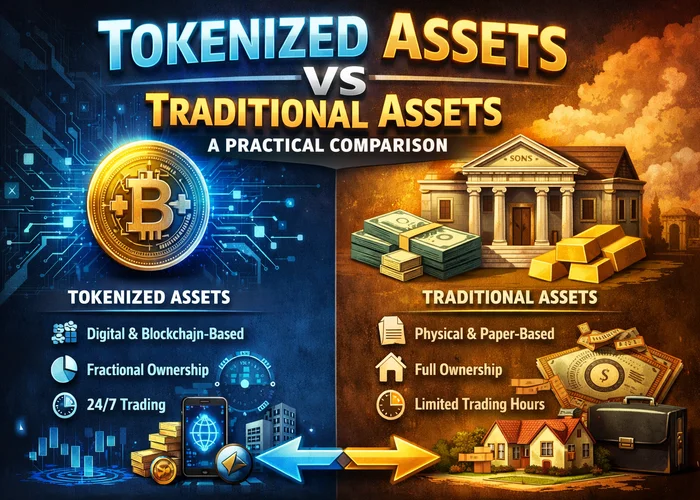The global artificial intelligence (AI) consulting market was valued at USD 6.9 billion in 2023 and is expected to grow at a compound annual growth rate (CAGR) of 25.71% to reach USD 54.7 billion by 2032, according to Econ Market Research.
As more companies become aware of how AI may revolutionize their operations and decision-making, this number is always shifting. Consulting firms are assisting them in comprehending and implementing AI in a manner that suits their unique requirements in order to enhance their organization.
AI strategy formulation, data analysis, machine learning deployment, and AI-powered automation are among the services offered in this sector.
It is anticipated that generative AI will continue to spread throughout businesses worldwide in 2024. The generative AI market is anticipated to expand rapidly over the next ten years to reach USD 1.3 trillion, reaching a USD 40 billion market size by 2022, per a report released by Bloomberg Intelligence (BI).
AI is being used by a number of industries, including manufacturing, healthcare, finance, and retail, to dominate the market. For instance, it’s employed in finance to manage risks and identify fraud. AI is used by retailers to manage inventory and provide individualized consumer experiences. Numerous businesses are seeking guidance on the strategic application of AI. There is a great demand for consulting organizations that provide advice on AI strategy.
Every business wants to make sure its AI system is morally sound. They require AI that is open, equitable, and compliant with rules. The market for AI consultancy is expanding quickly, yet there is still a talent shortage. Experts in domains such as machine learning and data science are in short supply.
Artificial intelligence (AI) keeps transforming the consulting sector as we go toward 2025 with creative tools and approaches improving client results and service delivery. Leading in this change are artificial intelligence consulting firms, which use cutting-edge technologies to offer more quick and effective answers. This blog shows how artificial intelligence is transforming the consulting scene by investigating the new instruments and technology influencing AI consulting services in 2025.
The Evolution of AI in Consulting
Market Overview
These days, every company aspires to innovate, engage customers, and enhance operations. The primary cause of this expanding industry is:
More Companies Using AI: As AI technology advances, businesses are keen to incorporate it into their operations. Consulting companies assist these companies in selecting the best AI technologies and creating solutions that are tailored to their requirements.
Making Better Decisions with Data: AI helps businesses make sense of the vast volumes of data they generate. Consultants assist businesses in putting up AI systems that transform this data into insightful knowledge.
Cost Savings: By streamlining procedures and automating tedious jobs, AI can cut expenses. Businesses are searching for experts to assist them identify ways to use AI to save money.
Regulatory and Risk Management: Companies need to abide by new rules as AI becomes more widespread. Consulting firms are assisting businesses in making sure that their AI solutions are applied responsibly and in accordance with the law.
Emerging AI Tools and Technologies in 2025
1. Customized Large Language Models (LLMs)
2. Generative AI for Content Creation
3. AI-Driven Decision-Making Platforms
4. AI-Powered Research Agents
5. Generalist Robots and Autonomous Systems
Emerging Trends to Look Out for
The Rise of AI-as-a-Service (AIaaS)
AI as a Service (AIaaS) makes AI more affordable for companies of all sizes by enabling pay-as-you-go access to AI tools and services. When it comes to helping businesses choose and deploy AIaaS solutions that meet their unique requirements, AI experts are essential.
Helping companies incorporate AIaaS solutions into their operations will become a bigger part of AI consulting in the future. This entails picking the best AI platforms, modifying AI models to meet business needs, and making sure that existing systems integrate seamlessly. In order to help businesses get the most out of their AI investments, AI consultants will also offer continuing assistance and training.
Focus on AI Ethics and Governance
Decision Support Systems Driven by AI
AI-powered decision support systems (DSS) are increasingly being used in strategic planning. 60% of businesses are investing in AI-driven decision-making technologies to improve their operational efficiency and forecasting accuracy, according to a recent Forrester report. These systems, which analyze data using machine learning algorithms to produce actionable insights, are being designed and implemented in large part by AI consultants.
For example, merchants are using AI-powered DSS to improve inventory control, which has resulted in a 20% decrease in overstock and stockout scenarios.
Increased Adoption of AI-Powered Automation
AI Collaboration and Augmentation
In the future of AI consulting, augmentation will be equally as important as automation. Instead than replacing human abilities, AI is increasingly being used to enhance them. A Gartner analysis predicts that 75% of businesses will move from piloting AI to operationalizing it by 2025, which would result in a five-fold increase in streaming data and analytics infrastructures. A new generation of collaborative AI solutions will be fueled by this move toward AI augmentation.
The development of AI systems that collaborate with human workers to improve their productivity and decision-making will be spearheaded by AI consultants.
The Impact of AI on Consulting Practices
Improved effectiveness
Enhanced Decision-Making
Individualized Client Solutions
Customized artificial intelligence models let consultants provide specialized solutions for certain client demands. This customizing promotes long-term relationships and client delight.
Effective integration of artificial intelligence into consulting services helps firms to acquire a competitive edge by providing faster, more accurate, more creative ideas than those depending just on conventional approaches.
Challenges and Considerations
Security and Privacy of Data
Ethical Use of AI
Constant Learning and Adjustment
The Future of AI in Consulting
By allowing consulting companies to extend their service offerings into areas such real-time analytics, AI strategy development, and implementation services, artificial intelligence will help to generate fresh revenue sources.
Finally, fast technical developments define the scene of artificial intelligence consulting services in 2025. Using these new tools and technologies can help consulting companies keep a competitive advantage in the changing market, improve their service delivery, and give clients more value.








